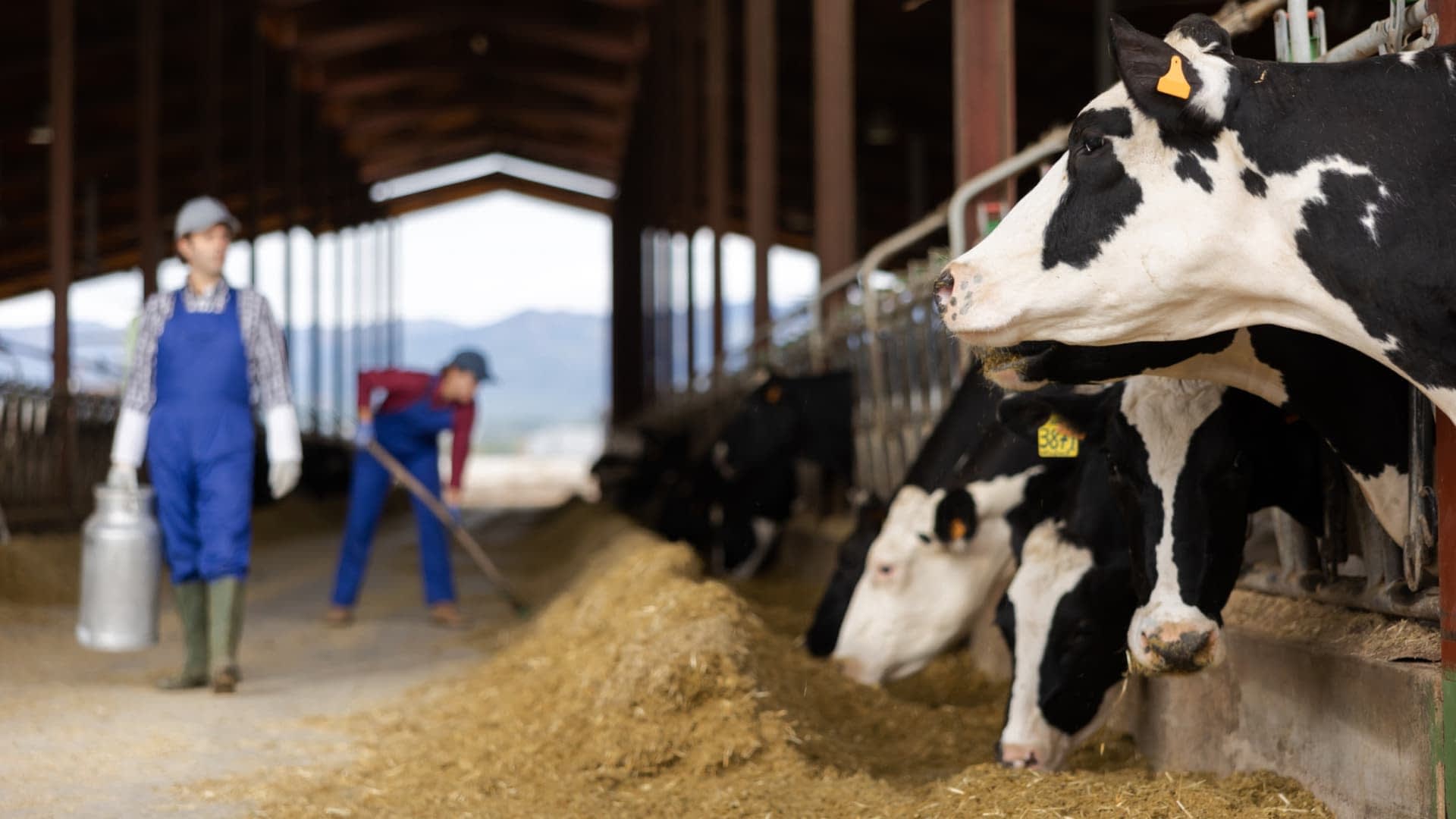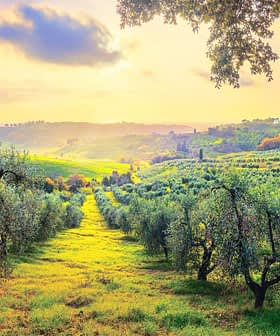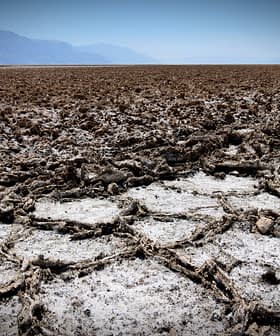Olive Milling Byproducts May Improve Animal Feed

A study in the Italian Journal of Animal Science found that olive milling byproducts can be used in ruminant diets to improve sustainability without harming the animals, with minimal impact on rumen microbial communities. Olive tree leaves and olive oil pomace are rich in polyphenols and fatty acids, making them potentially valuable dietary supplements for ruminants and offering a promising way to reduce environmental impact in livestock production.
A recent study published in the Italian Journal of Animal Science highlights the potential of olive milling byproducts in ruminant diets, improving the sustainability of both production chains without negatively affecting the animals.
Results indicate that olive tree leaves and olive oil pomace, the two main byproducts of the olive oil production process, have minimal impact on microbial communities in sheep rumens and promote sustainability in feeding strategies.
Sustainability is paramount in the livestock sector, responsible for an estimated 14.5 percent of total anthropogenic greenhouse gas emissions.
See Also:Asphalt Made with Olive Oil Byproducts Used to Pave a Highway in SpainThis has led to research into alternative feed sources that align with circular economy principles and do not compete with human nutrition.
As a result, numerous agricultural by-products are being explored as unconventional components in ruminant diets to mitigate the ecological footprint of food production.
Edible agro-industrial byproducts have emerged as promising ingredients to reduce environmental impact while meeting animal nutritional requirements.
They can potentially modulate rumen microbial activity, improving energy-protein balance and digestibility and reducing nitrogen excretions or methane emissions.
Rumen
The rumen is a specialized stomach chamber found in the digestive system of ruminant animals like cows, sheep, and goats. It’s the first and largest compartment of their multi-chambered stomach, where microbial fermentation breaks down fibrous plant material into nutrients.
Olive oil producers dispose of millions of tons of olive tree leaves and olive oil pomace annually, an additional cost and logistical challenge for many mills.
Olive oil pomace and olive tree leaves contain polyphenols and fatty acids, making them attractive dietary supplements for ruminants.
Their inclusion in diets may replace conventional ingredients, including roughage or concentrate, which separate research found could lower feeding costs by 75 percent.
Olive oil pomace, rich in water-soluble polyphenols and fatty acids, has improved digestibility compared to earlier forms, overcoming previous limitations in animal feeding.
Though lower in fiber quality, olive tree leaves contain valuable compounds like oleuropein and oleic acid, suggesting potential benefits in rumen microbial activity and milk quality.
The researchers conducted two in vitro trials to assess the impact of olive milling byproducts on rumen fermentation and microbiome ecology.
“The chemical composition of olive tree leaves and olive oil pomace makes them hypothetical modulators of rumen fermentation thanks to the high presence of polyphenols that can influence the activity of rumen microorganisms,” the researchers wrote.
Olive tree leaves were collected post-milling from a local mill and dried at 40 ºC to prevent oxidation, while olive oil pomace was derived from a two-half-phase milling system.
The first experiment included a control feed without olive tree leaves and an experimental feed with 9.2 percent olive tree leaves of total diet dry matter.
The second experiment included a control feed without olive oil pomace and an experimental feed with eight percent olive oil pomace.
All feeds had the same amount of protein and calories as their control diets, with the amount of olive tree leaves and olive oil pomace based on previous studies.
Rumen fluid was collected from three ewes (female sheep) following a 15-day diet regimen before slaughtering.
Olive tree leaves and olive oil pomace inclusion in the diet at the trial’s adopted levels caused minimal changes in the rumen environment. However, they influenced the relative abundance of bacterial species.
The researchers found that the control and olive tree leaf feed compositions showed similar nutritional value and digestibility.
They also found that diets with olive pomace oil and olive tree leaves fostered microorganism communities with balanced ratios of cellulolytic and non-cellulolytic bacteria.
The researchers wrote, “In the rumen, cellulolytic bacteria provide non-cellulolytic microorganisms with cellodextrins and cellobiose produced during cellulose catabolism, ensuring complete fiber digestion.”
Separate research has shown that complete fiber digestion in ruminants significantly reduces methane production.
“Olive processing by-products can be reused as novel ingredients in the diet of ruminants so that to improve the sustainability of both production chains,” the researchers wrote.
“Data reported in this study confirmed that olive tree leaves and olive oil pomace from olive post-milling can be considered good unconventional ingredients in ruminant feeding strategy and that their impact on the microbial community is minimal,” they concluded.










